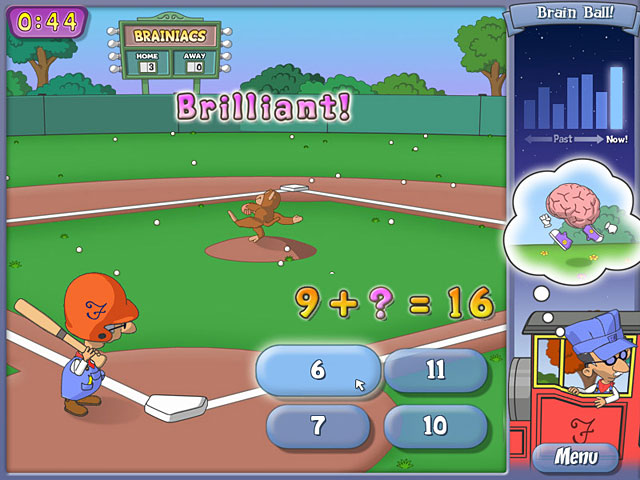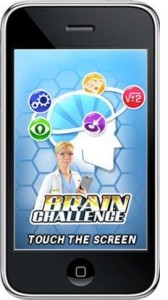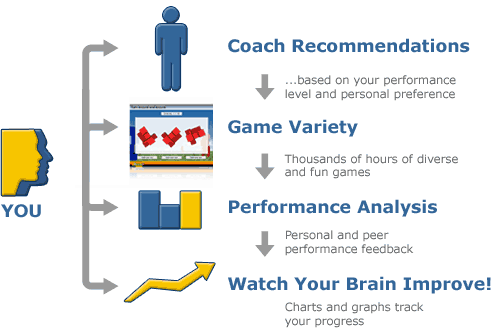Action Video Games Work Mental Muscles Big Time
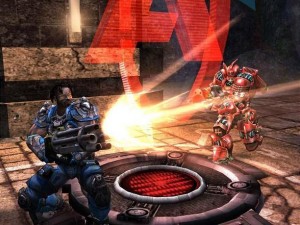 Multiple experiments done by Daphne Bavelier, professor of brain and cognitive sciences and her group at the University of Rochester, strongly suggest that action video games improve perception (speed and accuracy), attention (including multi-tasking), decision-making and other aspects of cognition.
Multiple experiments done by Daphne Bavelier, professor of brain and cognitive sciences and her group at the University of Rochester, strongly suggest that action video games improve perception (speed and accuracy), attention (including multi-tasking), decision-making and other aspects of cognition.
That is an amazing workout for the brain especially if you are getting it by having fun. The key is to play a game that is first-person and includes a lots of action or visual-motor coordination. My favorites are Geometry Wars and Soul Caliber 4.
Interested to hear from readers that play action video games. Which games do your play? Can you feel them working your mental muscles?
Categories: Decision Making, Memory and Learning, Mental Focus, Perception, Software Tags: brain training, games
Does Teasing Your Brain Make it Stronger?
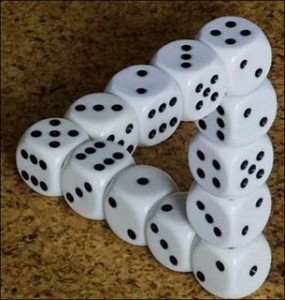 There is some evidence that we can enhance our brain function and cognitive performance by regularly solving puzzles, problems, riddles or games that tease our brain. Teasing means presenting some enjoyable mental challenge that is not too easy but not too hard.
There is some evidence that we can enhance our brain function and cognitive performance by regularly solving puzzles, problems, riddles or games that tease our brain. Teasing means presenting some enjoyable mental challenge that is not too easy but not too hard.
Classic crossword puzzles and the more recent Sudoka number-pattern puzzles are popular brain teasers. Some people love them others find them boring.
The key is to find the type of brain teaser you enjoy and enjoy it regularly.
If you have not discovered your inner brain teaser, or are shopping for new ones (always a good idea), check out Top 10 Brain Teasers and Games for Adults and Kids from Sharpbrains. You are sure to find something you like. If you do, the next challenge is find a steady supply of similar challenges.
Very interested to hear from readers that enjoy brain teasers. How do they enhance cognitive function?
Image Source: Fanpop!
Categories: Cognitive Decline, Lifestyle, Mental Focus, Perception, Problem Solving Tags: games
Make Scene Analysis Decisions up to 25% Faster
 On the Next Brain blog we explore specific techniques for improving brain function and cognitive performance. The best techniques are easy or pleasurable, have a significant impact and are backed by scientific evidence. Take for example, the new study on how video games impact the brain’s ability to process probabilistic information conducted at the University of Rochester.
On the Next Brain blog we explore specific techniques for improving brain function and cognitive performance. The best techniques are easy or pleasurable, have a significant impact and are backed by scientific evidence. Take for example, the new study on how video games impact the brain’s ability to process probabilistic information conducted at the University of Rochester.
Researchers found that playing action video games for as little as 50 hours increased decision speed up to 25% with no loss in accuracy.
The tasks involved analyzing a scene (sometimes shown visually other times just described verbally) and deciding what is going on. Subjects were 18-25 years old and do not normally play video games.
Why does this work? According to the researchers:
“Decisions are never black and white,” she said. “The brain is always computing probabilities. As you drive, for instance, you may see a movement on your right, estimate whether you are on a collision course, and based on that probability make a binary decision: brake or don’t brake.”
Action video game players’ brains are more efficient collectors of visual and auditory information, and therefore arrive at the necessary threshold of information they need to make a decision much faster than non gamers, the researchers found.
This suggest using action video games to train your brain should create lasting and transferable effects.
Categories: College Student, Decision Making Tags: games
The Amazing Brain Train
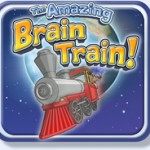 A playful way to do a little brain training using games: “Fueled by your mental energy, Professor Fizzwizzle’s Brain Train will take you on a brain-boosting adventure!
A playful way to do a little brain training using games: “Fueled by your mental energy, Professor Fizzwizzle’s Brain Train will take you on a brain-boosting adventure!
Put your mighty mind to the test and see how far you can go!”
15 online games for training your brain in planning, memory, spatial reasoning and numbers all for $6.99 or free for 24-hours. For a quick look check out this video.
Categories: Child, Memory and Learning, Mental Focus, Perception, Software Tags: games
Brain Challenge HD on Sale for Only $0.99
iPhone and iPad users can get Brain Challenge HD at a discount. If you like this brain teasing approach be sure to check out Brain Challenge 2, 3 and 4 by Gameloft.
Categories: Cognitive Decline, Memory and Learning, Other, Software Tags: games
Develop Your MOT – Multiple Object Tracking Skills
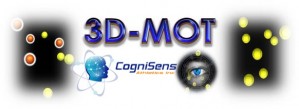 CogniSens Athletics is a small company dedicated to translating the latest neurophysics into tools for improving the cognitive performance of athletes. They just announced the release of 3D-MOT a three dimensional (3D) immersive training environment for developing the cognitive skills needed for multiple object tracking (MOT). It uses a computer and specialized goggles to teach you how to visually track more than one moving object at a time. A key cognitive skill in sports. To quote a news release:
CogniSens Athletics is a small company dedicated to translating the latest neurophysics into tools for improving the cognitive performance of athletes. They just announced the release of 3D-MOT a three dimensional (3D) immersive training environment for developing the cognitive skills needed for multiple object tracking (MOT). It uses a computer and specialized goggles to teach you how to visually track more than one moving object at a time. A key cognitive skill in sports. To quote a news release:
“D-MOT is a scientifically designed system for improving perceptual tracking skills by expanding an athlete’s capacity to absorb and process complex movement information. … players have shown that just one hour of distributed 3D-MOT stimulation yielded an average of over 50% increase in capacity to track at speed, with greater increases being realized with extended training. ”
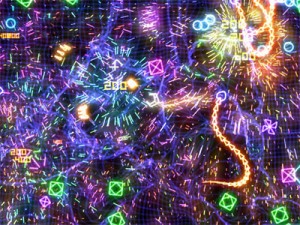 Most of us won’t have the opportunity to use such technology but I wonder if there is not more generally available options that produce some of the same effects. My guess is that some video games are an example.
Most of us won’t have the opportunity to use such technology but I wonder if there is not more generally available options that produce some of the same effects. My guess is that some video games are an example.
Consider Geometry Wars. Definitely need to be able to track multiple moving objects at once to get anywhere with this game. Indeed, in playing it, I have had to learn to defocus my eyes to increase my score. Most likely a sign that I am learning a new perceptual skill.
I am interested to hear from readers about examples of video games or other methods that can help us develop MOT (multiple object tracking) skills.
Categories: Mental Focus, Perception, Software, Training Tags: cognitive fitness, games, processing speed, sports
Benchmark Your Cognitive Fitness with Precision
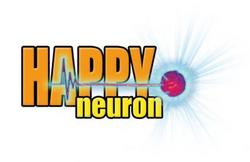 According to a recent press release, Happy Neuron, a brain training company has amassed a database of some 50 million training results. This is the biggest database of its kind and allows them to compare your cognitive training results to peers more precisely than anyone else on the market.
According to a recent press release, Happy Neuron, a brain training company has amassed a database of some 50 million training results. This is the biggest database of its kind and allows them to compare your cognitive training results to peers more precisely than anyone else on the market.
Happy Neuron uses games to train your brain. They have games for attention, language, memory, visual-spatial and executive function.
I am interested to hear from readers that use Happy Neuron’s products.
Categories: Executive Function, Memory and Learning, Software, Training Tags: brain training, games
Fast, Free and Fun Cross-Training for Your Brain
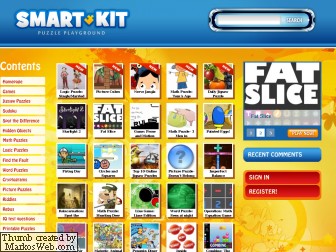 Crossword puzzles, a quick round of Sudoku, spot the difference, cryptograms or dozens of other short single-player games turn out to be a great way to improve memory, mental focus, problem solving ability and a host of other cognitive functions. They are a bit old school compared to the new brain games engineered on the latest neuroscience but research shows they can be just as effective!
Crossword puzzles, a quick round of Sudoku, spot the difference, cryptograms or dozens of other short single-player games turn out to be a great way to improve memory, mental focus, problem solving ability and a host of other cognitive functions. They are a bit old school compared to the new brain games engineered on the latest neuroscience but research shows they can be just as effective!
For a great collection of free, short and single player games and puzzles that will build your brain check out Smart Kit. The variety on this site is amazing. That is the key. You should be able to easily find one that is fun and when it gets boring there will be another waiting for you! The idea is to immerse yourself in a variety of short games and puzzles that cross-train your brain.
Interested to hear from readers that do any form of online cross-training for the brain. What products and sites do you use?
Categories: Memory and Learning, Mental Focus, Perception, Problem Solving, Software Tags: games
How Fast Do You Think? Should You Care?
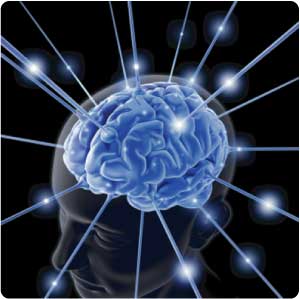 The speed at which your brain processes information is a fundamental measure of cognitive efficiency. Faster processing speeds have been linked to more effective intelligence, memory formation and even longevity. In short, the faster you think the smart you are! Happily, you can easily measure, and with practice improve, your thinking speed. Tools and techniques for increasing the speed of thought will be a frequent topic on the Next Brain Blog.
The speed at which your brain processes information is a fundamental measure of cognitive efficiency. Faster processing speeds have been linked to more effective intelligence, memory formation and even longevity. In short, the faster you think the smart you are! Happily, you can easily measure, and with practice improve, your thinking speed. Tools and techniques for increasing the speed of thought will be a frequent topic on the Next Brain Blog.
One way to get started is to take the Thinking Speed Test at Cognitive Labs. You need to go through a brief registration but it is worth it. They give you a short reaction time test and some handy feedback. You can even track your performance over time.
Try it out and post your results. Especially interested in what techniques you are using to improve it. My initial score was 241 milliseconds.
Source: Image of the Brain
Categories: IQ and EQ, Memory and Learning, Perception, Software, Training Tags: brain training, cognitive fitness, games, processing speed
Doing Simple Math Fast is a Major Brain Stimulant
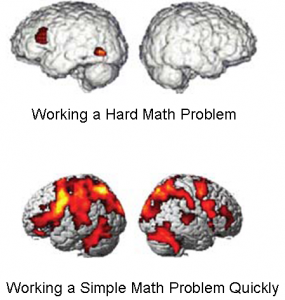 Doing simple calculations (3 + 5 = ?) very fast is becoming a popular brain training technique. It was pioneered by Dr. Ryuta Kawashima a Neuroscientist from Japan. He is well-known for the book Train Your Brain: A Better Brain in 60 Days, and BrainAge the Nintendo-based brain fitness system that we have covered on the Next Brain Blog before.
Doing simple calculations (3 + 5 = ?) very fast is becoming a popular brain training technique. It was pioneered by Dr. Ryuta Kawashima a Neuroscientist from Japan. He is well-known for the book Train Your Brain: A Better Brain in 60 Days, and BrainAge the Nintendo-based brain fitness system that we have covered on the Next Brain Blog before.
Similar techniques are popping up in many other brain training games and programs, especially those designed for mobile phones. For example, check out the Brain Blast Trainer series of iPhone apps.
The question is, does a daily dose of rapid mental mathematics improve your cognition, and if so in what way?
I have not been able to find literature that deals with this question. Dr. Kawahima’s research however, seems to clearly indicate (see figure) that doing simple math calculations rapidly stimulates the brain far more than doing hard math problems. Working the brain hard, like working a muscle hard should make it “bigger and stronger”.
I would like to hear from readers that use simple math as part of their brain fitness workout.
Source: Brain scanning images adapted from BrainAge Instruction Booklet
Categories: Books, Cognitive Decline, Problem Solving, Software, Training Tags: cognitive fitness, games

